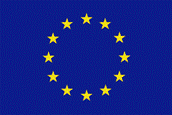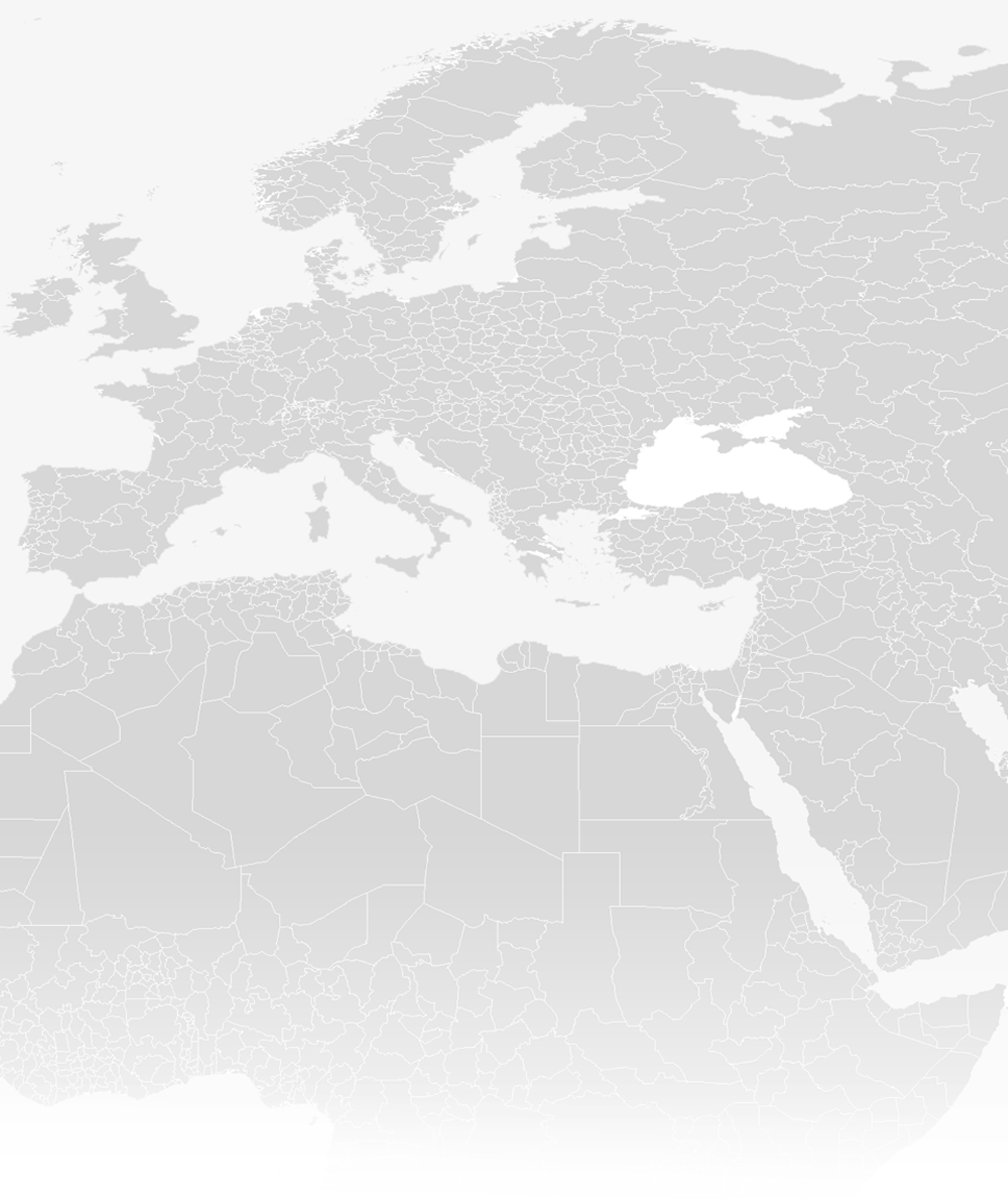

This project has received funding from the European Union Framework Program for Research and Innovation (SC5-18a-2014) under grant agreement nº 641538

Institute of Electrical and Electronics Engineers France Section (IEEE) (France)
IEEE France Section is a French non-profit organization that contributes to science
and engineering in France and in Europe. IEEE, also a non-profit organization, is the
world's leading professional association for the advancement of technology. The
organization's scope of interest covers many engineering and science fields related to Earth Observation
with more than 375,000 members in over 160 countries; It has more than 144 transactions, journals and
magazines and more than 1400 IEEE sponsored or cosponsored conferences worldwide each year. IEEE
is a global leader in the dissemination of technical information. In addition, the IEEE is a major
international standards organization with over 900 active IEEE standards and more than 400 in
development.
IEEE has played an active role in GEO and GEOSS development, leading the GEO activities in interoperability (Standards and Interoperability Forum) including the infrastructure for standards, best practices and co-leads selected workplan subtasks. IEEE members are on the GEO Infrastructure and Institutional Development Boards and in a number of GEO Communities of Practice. IEEE has contributed to GEO dissemination through a series of global workshops with 36 from 2005 through 2010. These have included a focus on GEOSS and Science. In addition, IEEE has developed web-based lectures and tutorials in Earth Observation for capacity building, numerous conference sessions on GEOSS for technical outreach and the creation of a new peer review journal in applications of Earth Observation (JSTARS). For outreach to the general public, IEEE created Earthzine (www.earthzine.org), which is focused on the impacts of earth observations in the GEOSS societal benefit areas. The IEEE is helping the global technical community to interconnect and interact in myriad new ways. Our audiences included not only IEEE members and their colleagues in more than 160 countries, but also those we hope will be the future generations of engineers. IEEE has participated in FP-7 projects relevant to Earth observation including EuroGEOSS, EGIDA, COOPEUS, and has participated on FP-7 advisory boards such as Medina, GIGAS, Balkan GeoNET.
Key project participants________________________________________________________
Robert Plana obtained a PhD in 1993 at LAAS-CNRS and Paul Sabatier University on the Noise
modelling and characterization of Advanced Microwave devices (HEMT, PHEMT and HBT). From
January 2005 to January 2006, he has been appointed director of the Information and Communication
Department at CNRS headquarters. From 2006 to 2011, he was heading a research group at LAAS-CNRS
in the field of Micro and Nanosystem for wireless communications. From November 2009 to November
2011, he was appointed as head of the department “Physic, Mathematics, Nanosciences &
Nanotechnology, Information and Communication Technology” at the Ministry of research in charge of
defining the French strategic for research and innovation. From December 2011 to December 2012, he
has been appointed as head of the strategy department at the Ministry of research in charge of defining the
French strategic for research and innovation. In January 2013, he joined Alstom group as R&D and
university relations director. Key role on the project: In-house consultant without payment.
Françoise Pearlman is an IEEE volunteer, and Global Earth Observation System of System (GEOSS) Workshop coordinator. Ms. Françoise Pearlman has major responsibilities for the IEEE outreach activities supporting GEO. She has coordinated over 30 workshops over the last few years. In 2009 workshops have emphasized the outreach to and across GEO communities of practice. Françoise is Web Master for the IEEE Committee on Earth Observation Website (see http://www.ieee-earth.org/). She has over 30 years of experience in engineering and management. Recently at Boeing, she was Software Horizontal Integration Manager, for a large Army program. Key role on the project: In-house consultant without payment –Head for the dissemination contribution in WP7
Dr Jay Pearlman has a Ph.D. from the University of Washington. Jay is a Fellow of the IEEE and is past IEEE GRSS VP for Information Services where he oversaw the web site/outreach activities,
education program, and implementation of remote access to lectures, conferences and workshops. Dr.
Pearlman was Principal IEEE delegate to GEO, Co-Chair of the GEO Architecture and Data Committee
and the technical lead for a series of GEOSS global workshop. He participated in EGIDA and leads the
Ocean Observations Research Coordination Network. He leads or supports the Dissemination for
NeXOS, COOPEUS, EuroGEOSS and other FP-7 projects. Dr. Pearlman has more than 75 publications
and 11 patents. Key role on the project: In-house consultant without payment – Connection of the
project to GEO
Costas Stasopoulos was born in Cyprus. He studied Electrical Engineering at the University of Rutgers, New Jersey, USA where received his B.Sc in Electrical and Computer Engineering in 1987. In 1992 he received a Masters in Business Administration (MBA), Management concentration, from the Maastricht Business School of Management, Netherlands. Upon completion of his studies he worked for three years for SITA, the world's leading service provider of integrated IT business solutions and communication services of the air transport industry. Then he moved on to the Electricity Authority of Cyprus (EAC), the major electricity provider of Cyprus, where he held various Engineering Specialist and Management positions. He currently holds the position of Assistant Area Manager, responsible for the Forward Planning, Methods and Programming Department. His main interests include Renewable Energy, Smart Grids, Innovations and Start-ups. Costas is IEEE Region 8 Director-Elect for 2013-2014 and will be coordinating IEEE activities in Europe and Africa during his 2015-2016 tenure as IEEE R8 Director. Key role on the project: In-house consultant without payment – Connection of the project to GEO
Siri Jodha Singh Khalsa is a Research Scientist at the National Snow and Ice Data Center (NSIDC), Cooperative Institute for Research in Environmental Sciences (CIRES), University of Colorado, Boulder, CO. He applies his expertise in remote sensing and geographic information systems to study changes in the global cryosphere. His informatics research is dedicated to developing processes that improve the way scientists access and interact with data. Dr. Khalsa is the IEEE Geoscience and Remote Sensing Society’s liaison to ISO/Technical Committee 211 (Geographic information/Geomatics) and is the IEEE Committee on Earth Observations (ICEO) vice chair for standards. He is a charter member of NASA’s Earth Science Data Systems Standards Process Group and is on the editorial board of the Springer journal Earth Science Informatics. Dr. Khalsa is the IEEE member of the GEO Infrastructure Board. Key role on the project: In-house consultant without payment – Connection of the project to GEO
Overview
Objectives
Participants
CREAF
Tiwah
CNR
IIASA
CMCC
52º North GmbH
S[&]t Corporation
ICM
BIRA
ARMINES
NILU
EXETER
Institut Mines-Télécom
IEEE
EARSC









